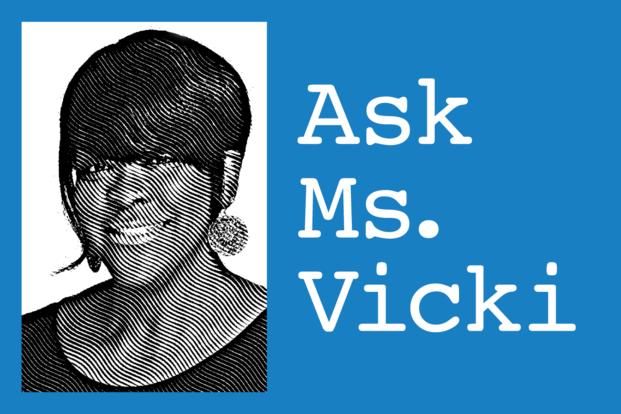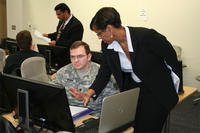Dear Ms. Vicki,
I am at a loss and very nervous about finding work after my husband retires next year.
My husband is an E7 in the Navy with 22 years of service. We are currently stationed in Hawaii, but will be moving to Nebraska.
I am a licensed psychiatric technician in California and currently work for Naval Health Clinic Hawaii as a contractor. As my California license is not recognized in most states, I'm having a hard time finding jobs even though I have an extensive scope of practice.
I recently decided that it would be best for me to return to school. However, I'm finding that there isn't any educational assistance for spouses of E7 and above.
Because of our move and his retirement, I will be forced to quit my job here in Hawaii and find a new one. What resources are available to me? Is it considered displacement? Am I eligible to receive any assistance to start another career through a certificate program?
Sincerely,
JK
Dear JK,
Please tell your husband I said congratulations on his retirement! I totally understand your concerns. Retirement, relocating and finding different employment can be stressful and can even cause anxiety.
I’ve walked in your shoes along with many other military spouses. It’s important that you take this retirement transition one small step at a time. It’s like my grandmother use to say, “Vicki, how do you eat an elephant? One bite at a time.” LOL.
I think you have many options. Regarding continuing your education, ask your husband to check and see if he has any GI Bill benefits. If he does, it will be easy for him to transfer some or all of the benefits to you.
It’s important for him to check on this option before he retires because the transfer has to take place before he retires. Many spouses (like me) are enjoying continuing their education with the help of the GI Bill.
Secondly, you should contact Military OneSource and speak to a spouse education counselor. They would let you know about any educational funding or additional certificate trainings for spouses. Also, ask the counselor if your professional license can transfer to a different state.
Lastly, you should know that an important part of your retirement transition is the transition assistance program (TAPs). Your husband will have to attend these seminars, but you can choose to attend as many as you wish because they will give you an enormous amount of information about your benefits.
Please keep in touch with me and let me know about your transition. Your experiences will be helpful for me and other readers. I wish you the best!
Sincerely,
Ms. Vicki
Keep Up with the Ins and Outs of Military Life
For the latest military news and tips on military family benefits and more, subscribe to Military.com and have the information you need delivered directly to your inbox.






















